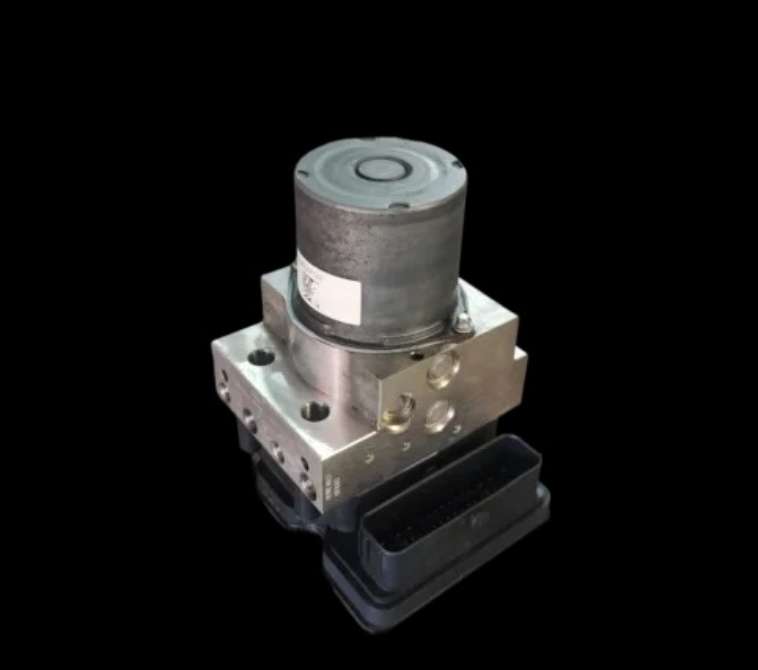Anti-Lock Brakes: The Silent Guardian of Road Safety
In the world of automotive innovation, few features have had such a lasting impact on safety as anti-lock brakes (ABS). Though often overshadowed by flashy infotainment systems or advanced driver-assistance technologies, ABS remains one of the most crucial systems designed to prevent accidents and protect lives. It’s not a luxury—it’s a necessity.
Whether you’re navigating rain-slicked roads, making an emergency stop on the highway, or avoiding a sudden obstacle, anti-lock brakes help ensure your vehicle stays under control. This article explores the purpose, function, and everyday importance of ABS, highlighting why this system deserves attention from every responsible driver.
What Are Anti-Lock Brakes?
Anti-lock brakes are a safety system that prevents the wheels from locking up during intense or sudden braking. In a vehicle without ABS, slamming the brakes can cause the tires to stop rotating, leading the car to skid uncontrollably across the road. Once that skid begins, steering becomes impossible, and your ability to control the vehicle is lost.
ABS addresses this by sensing when a wheel is about to lock and rapidly reducing and reapplying brake pressure—multiple times per second. This modulation allows the wheel to maintain some rotation and retain grip on the road surface, giving the driver control over the vehicle’s direction, even under heavy braking.
How Does ABS Work?
The operation of ABS is both simple and brilliant. It consists of the following components:
Speed Sensors on each wheel monitor how fast they’re turning.
An Electronic Control Unit (ECU) analyzes this data and determines if a wheel is decelerating too quickly (a sign that it might lock up).
Valves and a Hydraulic Pump then adjust the brake pressure to prevent that wheel from locking.
This process happens automatically, typically without the driver needing to do anything beyond pressing the brake pedal. In fact, the driver is advised not to pump the brakes, as ABS performs this function far more effectively and quickly than a human ever could.
Why ABS Matters: Real-World Benefits
ABS isn’t just a technological marvel—it has direct, practical benefits that make everyday driving safer:
1. Steering Retention During Braking
The main advantage of ABS is its ability to help drivers steer while braking hard. In emergencies, being able to swerve around an obstacle—even while pressing the brake pedal fully—can mean the difference between a near-miss and a serious accident.
2. Prevention of Skidding
Wheel lock leads to skidding, especially on wet, icy, or loose surfaces. ABS keeps the wheels rotating just enough to maintain traction, reducing the chance of a dangerous slide.
3. Stable Braking Across Conditions
ABS performs consistently on a wide range of surfaces, from dry highways to gravel or snow-covered roads. This adaptability makes it a universal safety benefit in all climates and regions.
4. Shorter Stops on Slippery Roads
On ice, wet pavement, or gravel, ABS can actually reduce stopping distances compared to traditional braking by preventing uncontrolled skidding.
Common Driving Scenarios Where ABS Helps
ABS isn't something you'll notice during gentle driving, but its impact is unmistakable during critical moments:
Sudden Braking on the Motorway: If traffic halts abruptly, ABS helps you slow down quickly without locking up.
Unexpected Obstacles: Whether it's an animal crossing or debris in your path, ABS lets you brake hard while steering away safely.
Driving in the Rain or Snow: Slippery conditions dramatically increase the risk of skidding. ABS keeps you grounded and gives you control.
Emergency Lane Changes: When you need to shift lanes quickly under pressure, ABS provides the stability to make it happen cleanly.
How to Recognize When ABS Is Working
When ABS activates, it’s not always obvious unless you’re paying close attention. You might feel:
A pulsing sensation in the brake pedal,
A clicking or buzzing sound from the brakes,
A slightly different braking feel, as the pressure modulates rapidly.
These aren’t malfunctions—they’re signs that the system is actively working to keep you safe. In that moment, resist the urge to let up on the brake or “pump” it. Instead, maintain firm, steady pressure and focus on steering.
Debunking ABS Myths
Many drivers misunderstand what ABS can and can’t do. Here are a few misconceptions, clarified:
Myth: ABS eliminates all skidding.
Reality: ABS only prevents skidding during braking—not from sharp turns or loss of control due to over-acceleration.
Myth: ABS always shortens stopping distance.
Reality: On some surfaces (like gravel), ABS may slightly lengthen stopping distance, but it gives you far greater control.
Myth: ABS removes the need for good driving.
Reality: ABS is a safety net, not a substitute for caution. Responsible driving habits still matter.
Maintaining a Healthy ABS System
To keep your anti-lock brakes functioning at their best, consider the following:
Pay attention to warning lights. If the ABS indicator stays on, have the system checked promptly.
Inspect your brakes regularly. Pads, rotors, and fluid condition all affect ABS performance.
Don’t ignore brake fluid. Old or low fluid can compromise both regular braking and the ABS unit.
Preventive care ensures that ABS will perform effectively when needed most.
Conclusion: A Quiet Hero on Every Drive
Anti-lock brakes are one of those features you might not notice—until the day they save you from disaster. Working silently in the background, ABS combines electronic precision with mechanical power to give you better control, especially when seconds count and the road is unforgiving.
While no system can completely eliminate risk, anti-lock brakes significantly reduce the chances of losing control during hard braking. Understanding how they work and respecting their limits can help you become a more confident and safer driver.
In today’s fast-moving world, where road conditions and driving environments are more unpredictable than ever, anti-lock brakes remain a cornerstone of modern automotive safety.
https://www.sinspeed.co.uk/category/abs-ecus/









